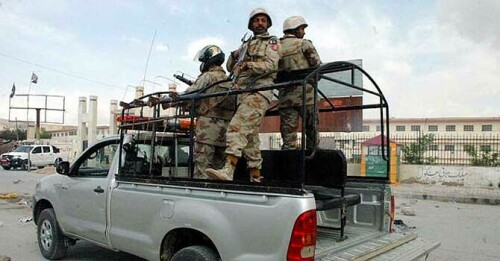QUETTA: Balochistan Chief Minister Dr Abdul Malik Baloch has expressed concern over the increasing cases of hepatitis in the province and said that his government was making efforts to control the situation.
The chief minister was talking to a delegation of Mercy Corps led by its Executive Director of European Headquarters, Simon O’Connell, at a meeting held here on Tuesday.
He said with the support of international health organisations the Balochistan government had initiated some programmes to curb hepatitis cases in the province.
The head of delegation informed the chief minister about projects being carried out under the supervision of Mercy Corps in the health sector of Balochistan.
Secretary Health Noorul Haq and Principal Secretary to the Chief Minister Nasim Lehri attended the meeting.
Malik Baloch said the provincial government was striving hard to bring a tangible change in the health sector of the province. The government is making all possible efforts to improve living standard of people by developing health, education, agriculture and fishery sectors. He said the health sector of the province was facing a number of difficult challenges.
Malik Baloch seeks support of international health organisations to curb hepatitis cases
He called for the support of international donors to reduce the mother and infant mortality rate and the cases of hepatitis, malaria and other diseases in the province.
He said the government had increased the health budget and it was trying to improve facilities in public sector hospitals, especially in remote areas, to ensure timely response to fatal diseases.
He said presence of gynaecologists and surgeons had been made mandatory in district headquarters hospitals.
The chief minister stressed the need for initiating projects to curb the cases of hepatitis and said backward districts of the province, such as Washuk, Awaran, Panjgur, Chagai, Musakhel, Kohlu, Barkhan, Naseerabad, Jaffarabad, Jhal Magsi and Sherani, should be given preference. He said the provincial government would extend all possible cooperation to donor agencies in initiating such projects.
The delegation appreciated measures being taken by the provincial government and assured support of Mercy Corps.
Published in Dawn, April 15th, 2015
On a mobile phone? Get the Dawn Mobile App: Apple Store | Google Play














































